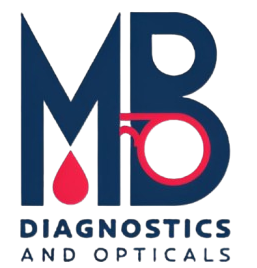Diabetes is a condition where the body cannot properly control blood sugar levels. There are different types, including type 1 and type 2, which are chronic conditions, and prediabetes, which is a warning sign. Gestational diabetes occurs during pregnancy and usually ends after childbirth.
Unfortunately, diabetes is growing rapidly around the world. Many people don’t realize they have it, which can lead to serious health problems. When left untreated, diabetes can cause heart disease, nerve damage, and more. This is why the importance of diabetes screening tests is so high. Screening helps catch diabetes early, which can make a big difference in managing it.
Who should think about getting regular tests? People at risk include those with a family history of diabetes, people who are overweight, those over 45 years old, and individuals who don’t exercise a lot. Your lifestyle and health can mean you’re at a higher risk, too. Medical guidelines suggest that these groups should prioritize screenings for better health.
Regular screening is crucial. It helps to discover diabetes before it worsens, helping people to live healthier lives. Remember that knowing your risk and getting tested regularly can safeguard your health.
The Different Types of Diabetes Screening Tests: What to Expect
When it comes to checking for diabetes, there are several diabetes screening test types. Each test serves a different purpose, offering unique insights into your health. Let’s take a look at these tests:
- A1C Test: This measures your average blood sugar levels over the past two to three months. It’s a key test for diagnosing diabetes and prediabetes, providing an overview of your blood sugar over time.
- Preparation for A1C: You don’t need to do much prep for this test. Just show up and provide a blood sample. It’s quick and easy!
- Fasting Blood Sugar Test: This test checks your blood sugar after you haven’t eaten for at least eight hours. It’s a useful test for detecting diabetes.
- How to Prepare: You need to fast overnight—no food or drink except water. Remember, the less you eat before the test, the better the results.
- Oral Glucose Tolerance Test: This test involves fasting and then drinking a special sugary solution. After a few hours, your blood sugar level is checked. This test sees how your body reacts to sugar.
- Preparation Needs: You’ll fast overnight and may need to avoid certain medications. It’s a bit longer, so bring something to pass the time.
- Random Blood Sugar Test: This test measures blood sugar at any time of the day. It’s convenient if you need quick results.
- Getting Ready: There’s no special prep required for this one. Just be yourself!
These tests are becoming more accurate all the time, thanks to technology. Diabetes screening test accuracy means better insights into your health.
Diabetes screening test guidelines recommend different tests based on your health needs. They ensure the right test at the right time for better outcomes.
Preparing for Your Diabetes Screening Test
Getting ready for your diabetes screening test is simple. Here’s how you can prepare:
- General Tips: Relax and wear comfortable clothes. Make sure you’re hydrated and ready to give a sample.
- Specific Instructions: For fasting tests, avoid eating or drinking anything except water. If your test is non-fasting, follow your normal routine.
- What to Bring: Always bring your ID and insurance card. Having comfort items, like a book or music, can help you stay calm.
Feeling anxious about tests is normal. Here are some ways to reduce anxiety:
- Deep Breathing: Take a few deep breaths to calm your nerves.
- Stay Positive: Remind yourself that tests are a step towards better health.
Remember, being prepared ensures you get the most accurate diabetes screening test results possible.
Interpreting Results and the Next Steps
When you receive your diabetes screening test results, understanding them is crucial. Here’s a simple guide:
- Normal Results: This means your blood sugar levels are fine. Keep up the healthy lifestyle!
- Prediabetes Results: These results indicate higher than normal blood sugar but not high enough to be diabetes. It’s a wake-up call to make lifestyle changes.
- Diabetes Results: This means you have diabetes and need to act on it promptly.
After getting your results, especially if they’re abnormal, follow-ups are vital. Your doctor can help with explaining what steps to take. You might need to adjust your diet, increase physical activity, or start medication.
Having a plan is important. Diabetes screening test guidelines stress the need for personalized health strategies. This includes maintaining a balanced diet and regular exercise.
Remember, the key is regular screening and active participation in your health journey. Proactive steps can help manage or even prevent diabetes. Never hesitate to consult with doctors or health professionals for advice.
Empower yourself by understanding these processes and staying informed! Regular screenings are your partner in health for a better future.
A diabetes screening test is an essential step in identifying early signs of diabetes or prediabetes, helping to prevent complications associated with high blood sugar. Early detection can lead to effective management through lifestyle changes, medication, and regular monitoring. If you have a family history of diabetes, are overweight, or are experiencing symptoms like increased thirst or frequent urination, it’s important to get screened.
MB Diagnostic Centre offers comprehensive and accurate diabetes screening tests to help you stay on top of your health.
Don’t wait—consult MB Diagnostic Centre today for a thorough diabetes screening and take control of your well-being.


